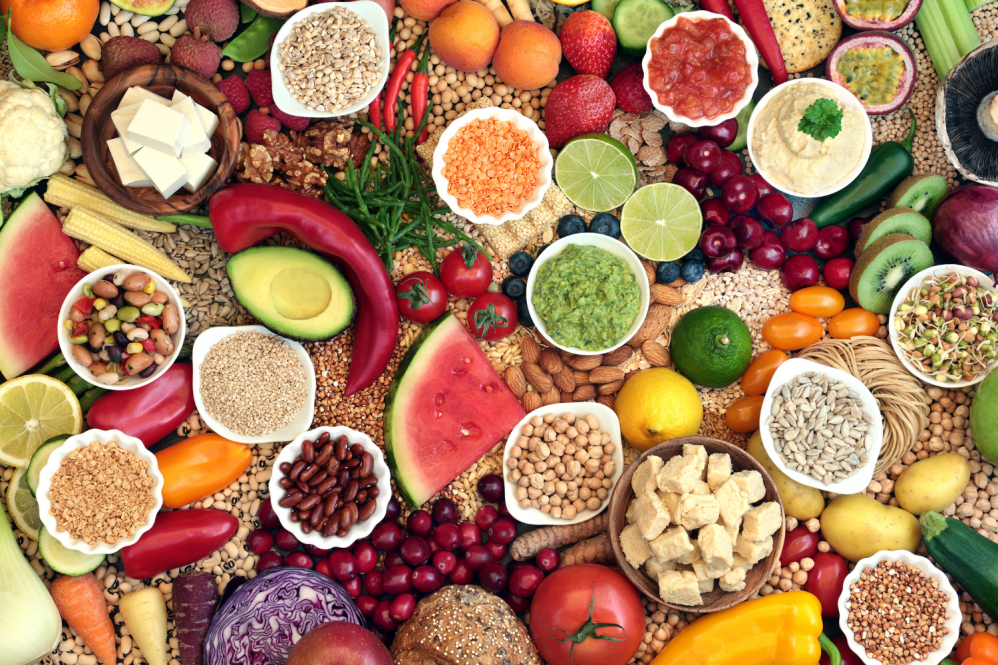Breast cancer is the most common cancer in women in the United States, except for skin cancers. It is about 30% (or 1 in 3) of all new female cancers each year. The American Cancer Society estimates about 310,720 new cases of invasive breast cancer will be diagnosed in women in the United States in 2024.
If you’re concerned about developing breast cancer, you might be wondering if there are steps you can take to help prevent it. Some risk factors, such as family history, can’t be changed. However, there are lifestyle changes you can make to lower your risk.
While some people have a higher genetic risk of developing cancer, research shows that nearly 25% of overall cancer cases could be prevented with diet and nutrition alone. Many cancers can take 10 or more years to develop, so everyday nutrition choices are crucial in cancer prevention.
Research has shown that eating a plant-based diet may provide a healthier alternative to the Standard American Diet, which is typically high-calorie loaded with red meat, high-fat dairy products, heavily processed foods, fast foods, refined carbohydrates, added sugars, and salt. The American Institute for Cancer Research promotes a plant-based diet.
“When we talk about a whole foodplant-based diet, we mean the majority (at least 80% to 90%) of the food should be unprocessed plant-based foods — things like legumes, fruits, vegetables, seeds, whole grains, and nuts. Some people may end up eating minimal amounts of processed plant foods or animal-based foods like dairy or meat occasionally, but not on a regular basis,” says Dr. Susan Tannenbaum, program director, Hematology/Oncology Fellowship at the Carole and Ray Neag Comprehensive Cancer Center at UConn Health.
In research studies, vegans, people who don’t eat any animal products, including dairy, or eggs, appeared to have the lowest rates of cancer of any diet. The next lowest rate was for vegetarians, people who avoid meat but may eat fish or foods that come from animals, such as milk or eggs.
Plant-based foods are full of naturally occurring compounds, called phytochemicals, such as antioxidants and carotenoids that protect the body from damage. Phytochemicals also interrupt processes in the body that encourage cancer production. Plant-based diets also are high in fiber, which has been shown to lower the risk of breast and colorectal cancer.
Tannenbaum advocates for a whole food plant-based diet and recommends this to her patients who are open to it, and many have had good results.
“It’s not easy but at least they feel like they are doing something positive,” says Tannenbaum. “It’s important for people to take ownership of their health.”
One of her patients had lost 40 lbs. on a whole food plant-based diet and says she feels great and alive again.
Eating a healthy diet has so many proven benefits, from losing weight to helping build strong muscle and bones. And it gives the body more of the nutrients it needs—which in turn may help cancer patients better manage treatment-related side effects and help them stay strong during their recovery.
Research shows that lifestyle changes can decrease the risk of breast cancer, even in women at high risk. To lower your risk:
Limit alcohol. The more alcohol you drink, the greater your risk of developing breast cancer. The general recommendation — based on research on the effect of alcohol on breast cancer risk — is to limit yourself to no more than one drink a day, as even small amounts increase risk.
Maintain a healthy weight. If your weight is healthy, work to maintain that weight. If you need to lose weight, ask your doctor about healthy strategies to accomplish this. Reduce the number of calories you eat each day and slowly increase the amount of exercise.
Be physically active. Physical activity can help you maintain a healthy weight, which helps prevent breast cancer. Most healthy adults should aim for at least 150 minutes a week of moderate aerobic activity or 75 minutes of vigorous aerobic activity weekly, plus strength training at least twice a week.
Breast-feed if you can. Breastfeeding might play a role in breast cancer prevention. The longer you breastfeed, the greater the protective effect.
Limit postmenopausal hormone therapy. Combination hormone therapy may increase the risk of breast cancer. Talk with your doctor about the risks and benefits of hormone therapy. You might be able to manage your symptoms with nonhormonal therapies and medications. If you decide that the benefits of short-term hormone therapy outweigh the risks, use the lowest dose that works for you and continue to have your doctor monitor the length of time you’re taking hormones.



